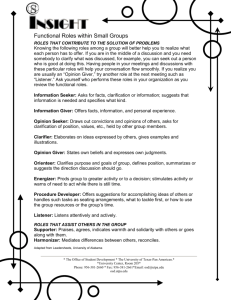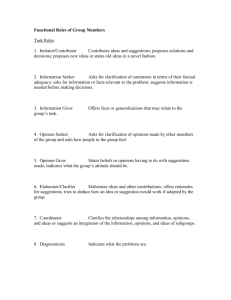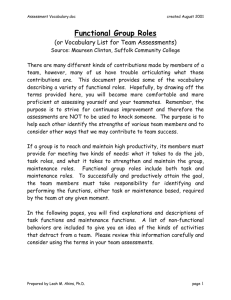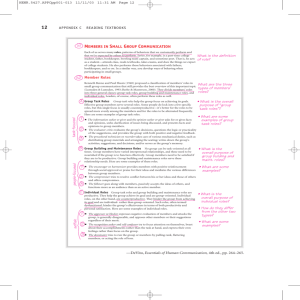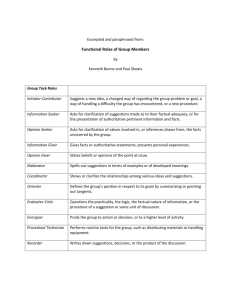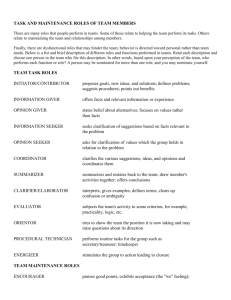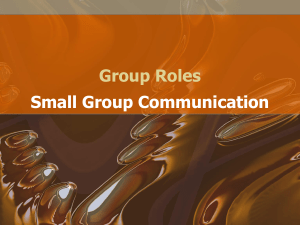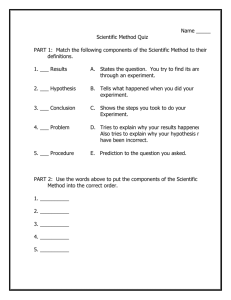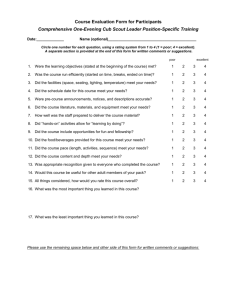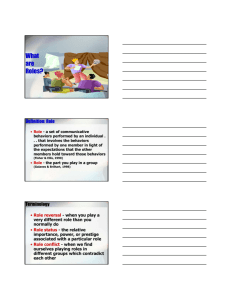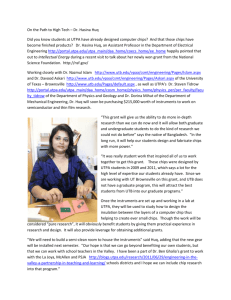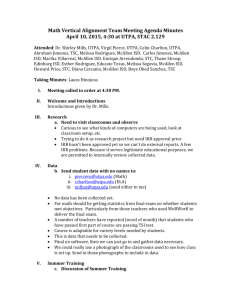Team Building
advertisement
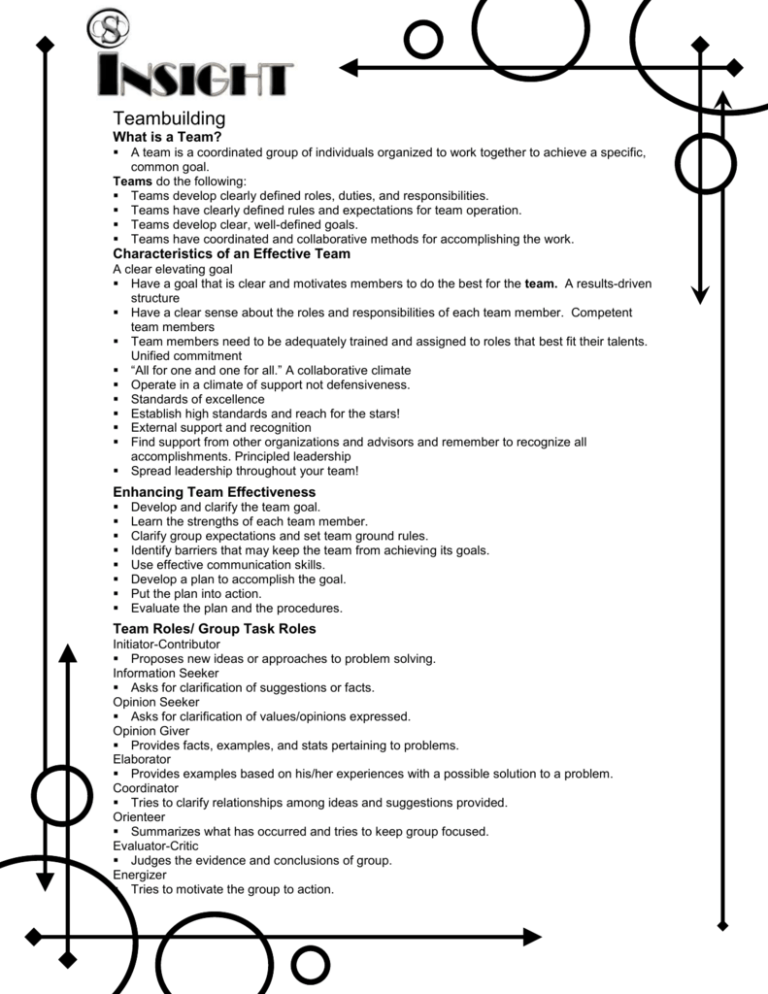
Teambuilding What is a Team? A team is a coordinated group of individuals organized to work together to achieve a specific, common goal. Teams do the following: Teams develop clearly defined roles, duties, and responsibilities. Teams have clearly defined rules and expectations for team operation. Teams develop clear, well-defined goals. Teams have coordinated and collaborative methods for accomplishing the work. Characteristics of an Effective Team A clear elevating goal Have a goal that is clear and motivates members to do the best for the team. A results-driven structure Have a clear sense about the roles and responsibilities of each team member. Competent team members Team members need to be adequately trained and assigned to roles that best fit their talents. Unified commitment “All for one and one for all.” A collaborative climate Operate in a climate of support not defensiveness. Standards of excellence Establish high standards and reach for the stars! External support and recognition Find support from other organizations and advisors and remember to recognize all accomplishments. Principled leadership Spread leadership throughout your team! Enhancing Team Effectiveness Develop and clarify the team goal. Learn the strengths of each team member. Clarify group expectations and set team ground rules. Identify barriers that may keep the team from achieving its goals. Use effective communication skills. Develop a plan to accomplish the goal. Put the plan into action. Evaluate the plan and the procedures. Team Roles/ Group Task Roles Initiator-Contributor Proposes new ideas or approaches to problem solving. Information Seeker Asks for clarification of suggestions or facts. Opinion Seeker Asks for clarification of values/opinions expressed. Opinion Giver Provides facts, examples, and stats pertaining to problems. Elaborator Provides examples based on his/her experiences with a possible solution to a problem. Coordinator Tries to clarify relationships among ideas and suggestions provided. Orienteer Summarizes what has occurred and tries to keep group focused. Evaluator-Critic Judges the evidence and conclusions of group. Energizer Tries to motivate the group to action. Group Building/Maintenance Roles Encourager Offers praise and understanding of others’ suggestions and ideas. Harmonizer Mediates disagreements. Compromiser Attempts to resolve conflicts by reaching an acceptable decision among the group. Gatekeeper/Expediter Encourages less talkative group members to participate and limits lengthy contributions of over-eager group members. Standard Setter Helps to set standards and goals. Group Observer Keeps records of the groups’ process and evaluates it. Follower Goes along with suggestions and ideas of group members. Individual Roles Aggressor Destroys or deflates status of others, tries to take credit for others’ contributions. Blocker Negative, stubborn, and disagreeable to others. Recognition Seeker Seeks the spotlight through boasting own achievements. Self-Confessor Use group as audience to report personal slights, feelings, etc. Playboy Cynical, nonchalant member who does not really care about the group or their involvement in it. Dominator Asserts authority by manipulating group members or attempting to take over, uses flattery or assertive behavior to dominate situations. Understanding group roles helps you to be a more productive member of your organization. When you understand how you act and realize why some act other ways, it can help you to understand how to address other peoples’ styles. Individual roles obviously take away from the team, but if a team is not working well we often take on those roles. By taking on roles that promote team building, it may save your team! Types of Power There are five types of power. Each has different influential factors: Legitimate Power • Being elected, appointed, or selected to lead a group. Referent Power • Being well liked. Expert Power • A member’s knowledge and information. Reward Power • Providing rewards for desired behavior. Coercive Power • The ability to punish another. While there are healthy types of power, it can effect the group process by adding a struggle for more power to the picture. People want as much power as possible and this can step into the boundaries of effectiveness. Members who want more power also shift the purpose of the team from team gain to individual gain. If you are interested in specific teambuilding activities for your organization, stop by the Office of Student Development and take a look at our resources. Handout created from notes compiled from Communicating in Small Groups: Principles and Practices BySteven A. Beebe & John T. Masterson * The Office of Student Development * The University of Texas-Pan American.* *University Center, Room 205* Phone: 956-665-2660 * Fax: 956-665-2661*Email: osd@utpa.edu www.osd.utpa.edu
